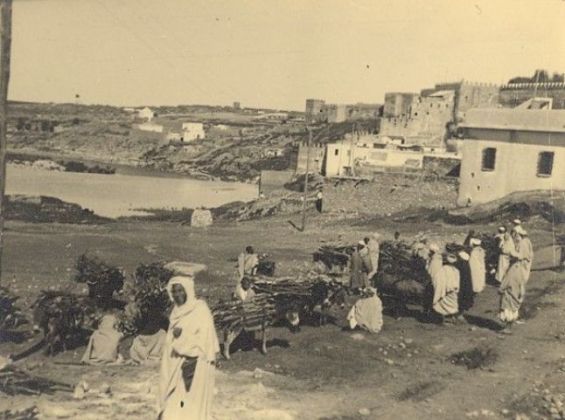During the eighteenth century, Alaouite sultan Mohammed ben Abdallah revived the city of Essaouira, relying on the services of several Jewish merchants. To turn the city into a trading hub, he consulted one of the most prominent figures of the Jewish community, Samuel Sumbal.
This Jewish man who led a prosperous career in trade and forged excellent relations with European powers was the sultan’s right-hand man and confidante. Indeed, Sumbal, who had a Marseille education, was the «diplomatic agent and secretary of the Sharifian court» during the 1760s, recalls Jewish history professor Daniel J. Schroeter.
Sumbal was even the man behind the appointment in 1766 of «representatives of ten of the most important Jewish families of Morocco», wrote Schroeter in his book «The Sultan’s Jew: Morocco and the Sephardi World», (Stanford University Press, 2002).
.jpg)
«The sultan confessed special privileges upon these Jewish merchants whether or not it was Sumbal who actually chose specific Jewish merchant families to inhabit the new town is uncertain, but his official connections with Essaouira are confirmed».
Making of the coastal city a powerful port was indeed entrusted to the Jewish man, who gathered merchants from Essaouira and Agadir in 1768 for the same reason, according to the account of French consul Louis Chénier.
Sumbal’s activities went hand in hand with the ambitions of sultan Mohammed ben Abdallah, who «wished to attract all the principal merchants, European and Moroccan seaport» when reviving Essaouira.
A diplomat who fell out of favor
In addition to his great attempts to help the sultan build Essaouira, Samuel Sumbal was a «preeminent figure in foreign relations in the courts» of sultan Mohammed ben Abdallah and his father. According to Schroeter, Sumbal served as «an adroit negotiator, interpreter and secretary for both sultans until 1782».
In 1750, Sumbal also served as a diplomat, going on a special mission to Denmark as an ambassador. And among the Jewish community, he was known as their «nagid» or leader, recalled Encyclopedia.
But Sumbal’s prosperous business and successful political career were struck by some of his plans. In the 1780s, he fell out of favor. In fact, Sumbal was empowered by the money he received from foreign powers in exchange of his services.
This enabled him to purchase «considerable property» in Morocco, Schroeter said. At some point Sumbal decided to flee Morocco, bringing with him all the money he collected. «He allegedly transferred his property to Genoa in 1780, and then attempted to escape the country», the same book recalled.

According to the account of Georg Horst, agent for the Danish African Company, Sumbal attempted to flee to Guinea after he was fined by the sultan. «With a well-filled casket (…) dressed like a Muslim, but he was betrayed by Muslims who wanted to steal his belongings and he was brought to Essaouira in chains», he recounted.
The Jewish merchant was jailed in Marrakech for four months before he was transferred to Salé. Although he returned to his position at the royal court, after paying the fine, Sumbal died two years later from poisoning in Tangier.
His death was unexpected and left the sultan with huge responsibilities to deal with. «The death of Samuel Sumbal frequently plunged him in a state of disarray; he missed him much and did not find anyone who could take care of his affairs with the same diligence and intelligence as this Jew», wrote Host, describing the feeling of loss the sultan went through after Sumbal’s death.





 chargement...
chargement...












